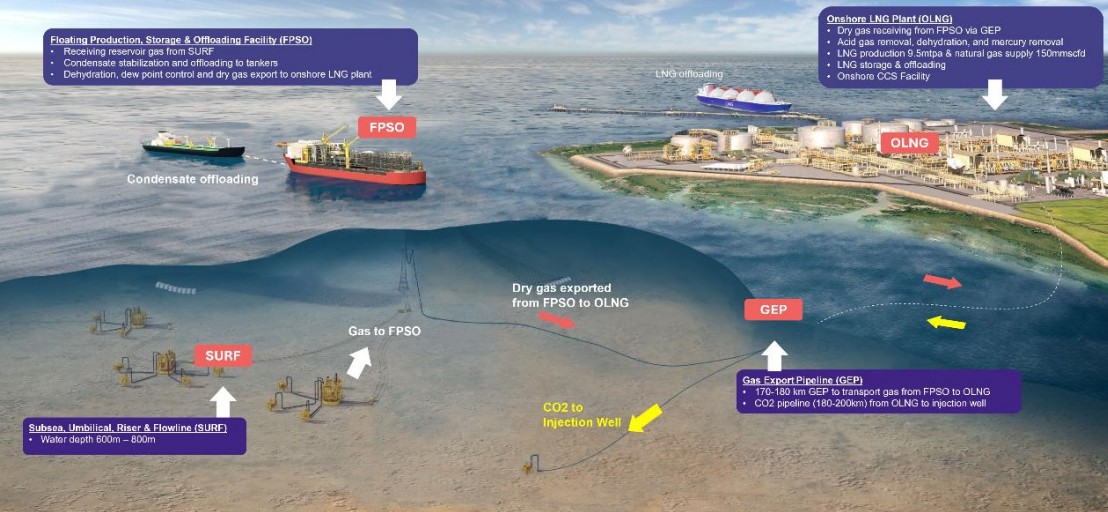This story requires a subscription
This includes a single user license.
Inpex said in a statement on Monday that the FEED work involves reviewing and defining the specifications of the facilities that will produce and process hydrocarbons from the Abadi gas field, as well as the onshore LNG plant (OLNG).
The FEED work will consist of four packages: OLNG; floating production, storage and offloading (FPSO); subsea umbilicals, risers and flowlines (SURF); and gas export pipeline (GEP).
Each package includes a scope related to carbon capture and storage (CCS).
Inpex has at this time awarded the FPSO, SURF, and GEP contract packages.
The FPSO contract package consists of a “dual FEED” method involving two contractor consortiums that will work in parallel but separately to ensure a competitive environment is maintained, Inpex said.
In this method, FEED work and engineering, procurement and construction (EPC) work will be awarded to the same contractor consortium, effectively assigning EPC work to the contractor consortium that delivers technically and commercially superior FEED services, Inpex said.
Inpex also plans to employ the dual FEED method for the OLNG contract package and will
select the contractor and conclude the contract in “due course.”
A consortium consisting of Technip Engineering Indonesia (lead contractor), Technip
Indonesia, and JGC Indonesia will work on the FPSO dual feed.
Moreover, a consortium consisting of Saipem Indonesia (lead contractor), Tripatra Engineers &
Constructors, Tripatra Engineering, and McDermott Indonesia will also work on the FPSO FEED.
Worley SEA Indonesia won the FEED work on the gas export pipeline as well as for the FEED work on subsea umbilicals, risers, and flowlines.
Inpex did not provide the pricing details of the contracts.
9.5 mtpa
Inpex Masela, a unit of Inpex, has a 65 percent operating stake in the Abadi project, while Indonesia’s Pertamina has 20 percent and Malaysia’s Petronas owns 15 percent.
The project’s annual LNG production volume is expected to reach 9.5 million tons, equivalent
to more than 10 percent of Japan’s annual LNG imports. T
Inpex said the project is expected to contribute to improving energy security in Indonesia, Japan, and other Asian countries and generate a “stable supply of low-carbon energy over the long term, based on its world-leading gas field properties and plentiful reserves enabling efficient development as well as the project’s CCS component.”
In April, a spokesman for Inpxe told LNG Prime that the company still expects to launch the FEED work for the planned Abadi LNG project in mid-2025.
“We have also said that FEED typically takes two years to accomplish, so that would put FID in around 2027. We will aim to start production at the beginning of the 2030s,” the spokesman said.
In May, Inpex also signed preliminary agreements with Indonesian firms regarding the LNG project.
The Inpex-operated project has seen many changes over the years and initially, the development of the Masela offshore block involved a floating LNG plant, while it now includes a 9.5 mtpa onshore LNG plant with an estimated cost of about $20 billion.
In December 2023, Inpex received written approval for the revised plan of development for the Abadi LNG project, which includes a CCS component.
Prior to that, Shell completed the sale in October of its 35 percent stake in Indonesia’s Masela PSC, which includes the planned Abadi LNG project, to Pertamina Hulu Energi and Petronas Masela.

